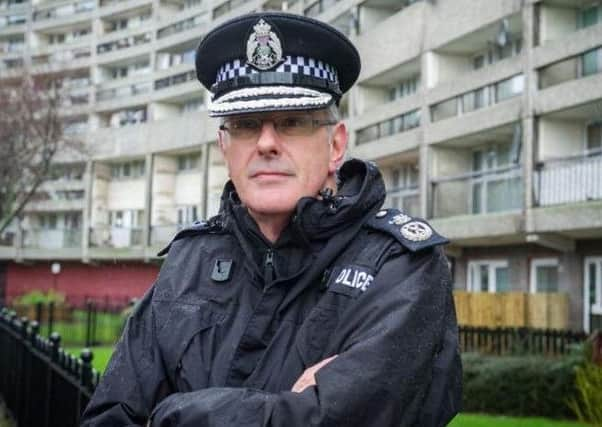Leader comment: The importance of due process in Chief Constable saga


The argument went that eight were better able to resist such pressures than just one. This concern was part of the reason behind the creation of the Scottish Police Authority (SPA), which was designed to hold the Chief Constable to account while keeping our elected representatives at arms length.
Justice Secretary Michael Matheson would have been well aware of the sensitivities when he questioned a decision by the SPA to allow the Chief Constable, Phil Gormley, to return to work from “special leave” despite an ongoing investigation into allegations of bullying.
Advertisement
Hide AdAdvertisement
Hide AdAccording to Labour, Mr Matheson “overruled” the SPA and, in doing so, “seriously undermined” the public’s confidence in the body’s independence. Mr Gormley’s lawyer has also said his client is concerned about Mr Matheson’s “intervention”. But, given his account of events in a statement to MSPs yesterday, Mr Matheson seems to have been left with little choice but to make his views known. First of all, he said the then SPA chair, Andrew Flanagan, had asked for a meeting at which he presented the Justice Secretary with an apparant fait accompli: the SPA’s board had decided in private that Mr Gormley would return to work the next day – alongside staff who had complained about his conduct.
In doing so, Mr Flanagan was inviting an opinion from Mr Matheson, who asked for reassurance that “due process” had been followed; this, the Justice Secretary told Holyrood, was not forthcoming.
He was also concerned that the Police Investigations and Review Commissioner (PIRC) had not been told, despite the potential impact on her bullying inquiry. The day after this meeting, the SPA reconsidered the issue and decided Mr Gormley should stay on special leave. Mr Matheson may have applied a degree of pressure, but it was an SPA decision nonetheless.
It hardly seems unreasonable to ask that due process be followed and it is astonishing to think Mr Gormley’s return to work might have been sprung as a surprise. Unless there is more to the story, this sorry episode shows just how much work the new SPA chair, Susan Deacon, has to do. Ensuring due process and greater openness should be high on her agenda.
